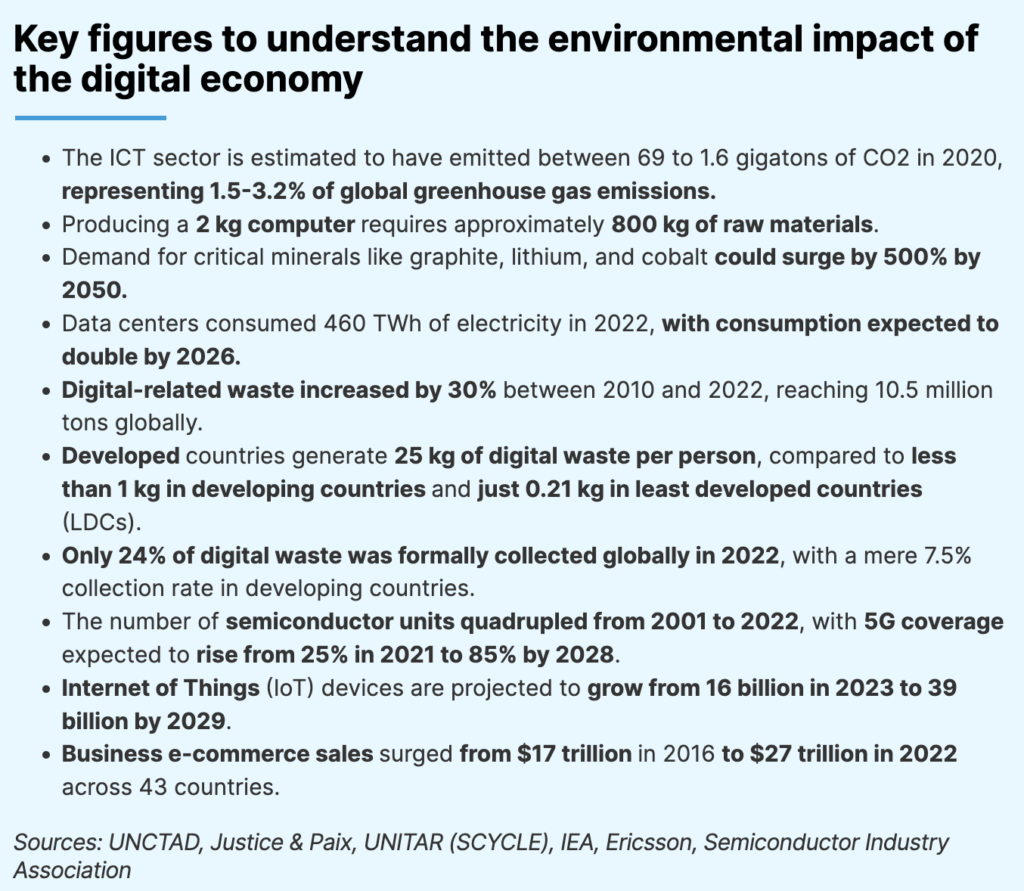On July 10, UN Trade and Development (UNCTAD) launched The Digital Economy Report 2024, highlighting the global digital sector’s significant environmental impact and the disproportionate burden developed by developing countries. The report underscores that while digitalization fuels global economic growth and presents unique opportunities for developing nations, its environmental consequences are becoming increasingly severe.
Due to existing digital and development divides, developing countries are unevenly impacted economically and ecologically, yet they hold the potential to harness this digital shift to promote growth. People and businesses are increasingly using the Internet to purchase goods and services. E-commerce is a crucial application of digital technologies, significantly impacting domestic and international trade.
Since the early 2000s, online shoppers have skyrocketed from under 100 million to approximately 2.3 billion in 2021. The value of sales on the top 35 global e-commerce platforms has dramatically increased, rising from $2.6 trillion in 2019 to over $4 trillion in 2021, with Alibaba, Amazon, JD.com, and Pinduoduo leading the market.
According to UNCTAD, the total value of e-commerce sales by businesses in 43 developed and developing countries increased from $17 trillion in 2016 to $27 trillion in 2022. While most of these sales are domestic, the proportion of international e-commerce is growing. Nonetheless, the shift to e-commerce is still in its early stages in many developing countries, especially in least-developed countries (LDCs).
E-commerce is reshaping economic activities and consumption patterns, with positive and negative environmental sustainability consequences. Precise assessments of its environmental impact are challenging due to limited data, but the overall effect hinges on how businesses manage warehousing, transportation, logistics, packaging, returns, and consumer behavior.
The rise of e-commerce has increased consumption by providing greater accessibility and convenience, lower prices, a wider variety of products, and more extensive online marketing. This has led to more frequent purchases and impulse buying, contributing to overconsumption, higher transportation emissions, and increased waste.
To make e-commerce more environmentally sustainable, there needs to be a stronger focus on circular business models, ethical sourcing and production, energy-efficient logistics, renewable energy adoption, eco-friendly delivery solutions, sustainable packaging, and promoting sustainable consumption.
Policymakers can support these changes by implementing a balanced mix of legislative and regulatory measures and tax mechanisms to reduce CO2 emissions in transportation and minimize e-commerce waste. Achieving this will require collaborative efforts among governments, businesses, platforms, logistics providers, and consumers.

Bron: UNCTAD
